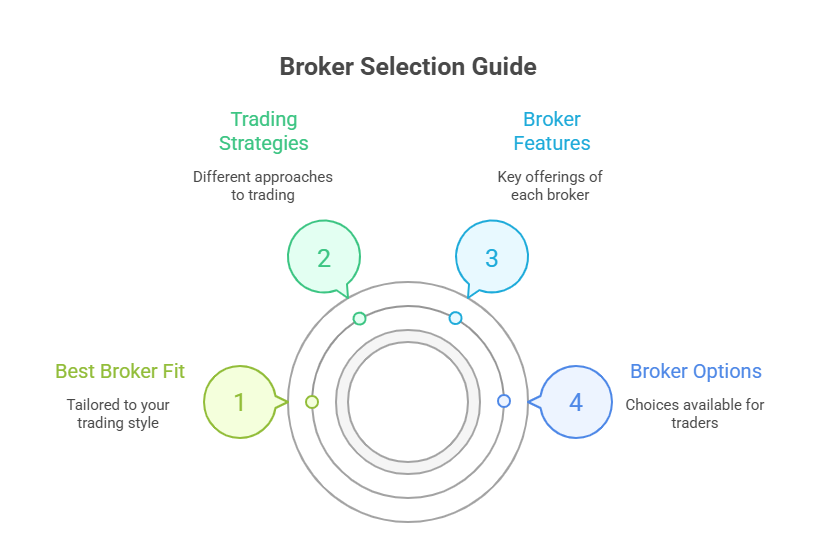Plus500 suits beginners seeking fixed-cost, simplified trading.
Pepperstone is the better broker for most users, offering tighter spreads, MT4/MT5/cTrader access, and automation support.
Fees: Pepperstone = raw spreads; Plus500 = no commissions
Tools: Pepperstone = MT4/MT5; Plus500 = WebTrader only
Use Case: Pepperstone = scalping/algos; Plus500 = beginners/manual trades
Can You Trust These Brokers? (Licenses & Safety)
Plus500 is regulated by the FCA (509909), ASIC (417727), and CySEC (250/14). It offers segregated accounts, negative balance protection, and investor coverage via the FSCS or ICF. Security includes SSL encryption and basic SMS/email 2FA.
Pepperstone is licensed by the FCA (684312), ASIC (414530), and DFSA (F004356). It uses segregated client funds, app-based TOTP 2FA, and supports encrypted trading via MT4, MT5, and cTrader. Compensation applies under FSCS and local protections.
Pepperstone offers stronger platform security and regulatory diversity, making it the more robust choice.
Broker Regulation Snapshot
| Broker | FCA | ASIC | CySEC | DFSA | 2FA Type | Compensation | Platforms |
| Plus500 | Yes | Yes | Yes | No | SMS/Email | FSCS / ICF | WebTrader only |
| Pepperstone | Yes | Yes | No | Yes | TOTP App | FSCS / UAE | MT4 / MT5 / cTrader |
Platform & Tools — What Can You Actually Use?
Plus500 only supports its proprietary WebTrader, with no access to MT4, TradingView, cTrader, APIs, or third-party plugins. It is built solely for manual trading and lacks support for copy trading, automation, or custom indicators.
Pepperstone supports MT4, MT5, cTrader, and TradingView, offering copy trading, algorithmic execution, and plugin-based extensions like Expert Advisors. Platforms allow API connectivity, automation, and advanced charting.
Manual traders can use both platforms, but only Pepperstone supports bot/algo workflows and trading automation.
Plus500 suits beginners, while Pepperstone is built for high-frequency, system-based traders.
Platform Feature Support
| Feature | Plus500 | Pepperstone |
|---|---|---|
| MT4 / MT5 | No | Yes |
| cTrader | No | Yes |
| TradingView Integration | No | Yes |
| Copy Trading | No | Yes |
| Algorithmic Trading | No | Yes |
| API Access | No | Yes |
| Algo/Bot Ready | No | Yes |
| Manual Trading | Yes | Yes |
Fees & Spreads — Who’s Cheaper?
Pepperstone is cheaper overall for high-volume or active traders, using a raw spread + commission model that scales efficiently.
Plus500 charges no commission, but uses wider fixed spreads, a $10/month inactivity fee, and higher overnight swap costs.
This is a direct trading cost comparison across common instruments and fee types.
Both brokers disclose pricing transparently, but Plus500’s passive fees are often overlooked.
Example:
EUR/USD overnight swap: Pepperstone = –$5.10, Plus500 = –$7.80 (long position, 1 lot).
Broker Cost Breakdown
| Asset | Fee Type | Plus500 | Pepperstone |
|---|---|---|---|
| EUR/USD | Spread / Swap | 0.8 pip / –$7.80 | 0.1 pip / –$5.10 + $3.50 |
| Gold (XAU) | Spread Only | 0.4 USD | 0.13 USD + $3.50 |
| NASDAQ | Spread Only | 1.2 points | 0.9 points + $3.50 |
| GBP/JPY | Spread Only | 3.0 pips | 0.9 pip + $3.50 |
What Can You Trade?
Plus500 offers broader CFD market access, covering over 2,800 instruments across forex, stocks, indices, commodities, and ETFs. It’s better suited for retail traders seeking variety.
Pepperstone supports fewer assets, but with deeper liquidity, tighter spreads, and faster execution—ideal for active trading in core markets.
CFD Instruments Offered:
- Forex – All majors, minors ( Both)
- Crypto CFDs – BTC, ETH ( Regional limits apply)
- Indices – US500, DAX, FTSE ( Both)
- Stocks – Global CFDs ( Plus500 = more)
- ETFs – ( Plus500 only)
Verdict: Plus500 = breadth; Pepperstone = depth.
Which Broker Fits Your Trading Style?
Plus500 fits beginner and swing traders seeking fixed-cost, manual CFD trading via a simplified WebTrader.
Pepperstone is better for scalpers, algo traders, and high-frequency users, offering MT4/MT5, cTrader, and raw spread pricing for automation.
Best Fit by Strategy:
- Beginners → Plus500 (low learning curve, no complex tools)
- Scalpers / EA Users → Pepperstone (low latency, automation)
- Swing Traders → Plus500 (fixed overnight fees)
- Copy Traders → Pepperstone (Myfxbook, DupliTrade)
- News Traders → Both (fast execution)
Avoid Plus500 if you need automation. Avoid Pepperstone if you prefer fixed pricing simplicity.

Is It Available in My Country?
Plus500 is unavailable in the U.S., Canada, and parts of MENA. It operates in the UK, EU, India, Australia, and South Africa under FCA, CySEC, ASIC, and FSA regulation. Availability depends on IP location and entity routing.
Pepperstone also restricts U.S. users but supports UAE, Kenya, Malaysia, and APAC via DFSA, ASIC, and FCA.
| Region | Plus500 | Pepperstone |
|---|---|---|
| U.S. | No | No |
| UAE | Restricted | (DFSA) |
| India | Yes | Yes |
| Kenya | No | Yes |
| Australia | (ASIC) | (ASIC) |
Final Verdict
Best for Beginners — Use Plus500 if:
- You want fixed-cost, zero-commission trading
- You prefer simple WebTrader over complex tools
- You don’t need MT4, bots, or advanced features
Best for Active Traders — Use Pepperstone if:
- You need MT4/5, cTrader, or TradingView
- You use scalping, EAs, or automation
- You want tighter spreads on high volume trades
Verdict:
Match your broker to your strategy — not the other way around.
FAQs
Q1. Can U.S. traders use Plus500 or Pepperstone?
No. Both brokers restrict U.S. clients due to regulatory compliance. Traders in the U.S. must use locally regulated alternatives.
Q2. Does Plus500 support MetaTrader or TradingView?
No. Plus500 only offers its WebTrader. It does not support MT4, MT5, or TradingView integration.
Q3. Which broker is better for automation or bots?
Pepperstone supports EA trading, cTrader Automate, and API access. Plus500 does not support any trading automation tools.
